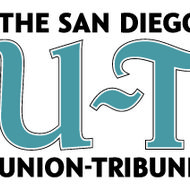January 10, 2003
By Jonathan Granoff
San Diego Union Tribune
War does not exist without the shedding of innocent blood. Under the best-case scenario, Iraq’s children – present victims of the Ba’ath Party mafiocracy with its Don, Saddam Hussein – will suffer most. Destruction of Baghdad’s electronic grid will collapse hospitals and water supply systems, and innocent civilians will certainly be the chief victims.
Widely accepted figures from the International Peace Research Institute say war disproportionately affects civilians over combatants 8 to 1. War is never predictable; its fallout, blowbacks, collateral damage and horrors often outstrip our imaginative capacities. Nothing stimulates terrorists as much as the environment of war.
However, there is another course in which justice and security can be advanced since the U.S. threat of force has opened a way. Let us seize it while the moment lasts.
According to a proposal floated in United Nations and policy circles, by moving from the current regime of 100 inspectors to a more intrusive regime of at least 500 to 1,000 permanent monitors with a mandate to prevent the threat of weapons of mass destruction, a dramatic improvement in security can be achieved promptly.
This “robust monitoring” proposal has enormous political and practical benefits. Since it is obviously due to the threat of overwhelming force that Iraq acceded to inspectors or monitors, the United States – hawks and doves alike – could support and legitimately claim credit for such a life-saving security enhancing initiative.
Webbing Iraq with hundreds of intrusive monitors would hold it accountable to international law, constrain its capacity to threaten others with weapons of mass destruction, enhance the security of the United States and the Middle East, and set a disarmament precedent useful in addressing other dangerous situations such as North Korea.
Promoting this course would honor and express one of our nation’s highest values – adherence to the rule of law. The Ba’ath Party’s illegalities will be effectively constrained. Thousands of lives, especially innocent civilian lives, will be spared.
Military presence in the region can continue without destabilizing the international legal framework. Iraq can be rendered threat-less and a precedent set for the international community to intrusively monitor potential and existing rogue regimes.
A permanent and intrusive monitoring regime is entirely consistent with existing U.N. resolutions. No further resolutions would be needed to go forward.
There will be strong support from members of the Security Council as there is little enthusiasm for a virtual unilateral strike based on a strong-armed coalition. Rather than widening fractures in the international coalition of the war against terrorism and aggravating uncertainty and disorder throughout the Middle East and the rest of the world, robust monitoring will set a new standard of cooperation under law
The United States also should call for a new resolution allowing human rights monitors to guard against human rights violations in Iraq. Adding 200 human rights monitors to the presence of 500 to 1,000 weapons monitors would make it difficult for the Ba’ath Party to continue to carry out summary and arbitrary executions, torture, enforced or involuntary disappearances, suppression of freedom of expression, and arbitrary arrests and detention. Flouting these monitors also could provide a basis under international law for multilateral intervention.
This would constitute an enormous political victory for the United States, showing clear improvements in security, human rights, international cooperation and law, and disarmament without the loss of hundreds of thousands of civilian lives thousands of American ground troops a military strike would likely entail.
With a strengthened web of eyes and ears building a relationship with the scientific community in Iraq, even if the mafiocracy continues with its nefarious aspirations, it will be almost impossible for the Ba’ath Party regime to act on its impulses. These methods of constraint will render the regime changed, and in a new environment, the natural dissent that human beings spawn when sufficiently safe will emerge, leading naturally to regime change itself.
Granoff is president of Global Security Institute (https://www.gsinstitute.org) and the co-chair on the American Bar Association Committee on Arms Control and National Security. He can be reached via e-mail at jgg786@aol.com.
Copyright 2003 Union-Tribune Publishing Co.
Jonathan Granoff is the President of the Global Security Institute, a representative to United Nations of the World Summits of Nobel Peace Laureates, a former Adjunct Professor of International Law at Widener University School of Law, and Senior Advisor to the Committee on National Security American Bar Association International Law Section.








